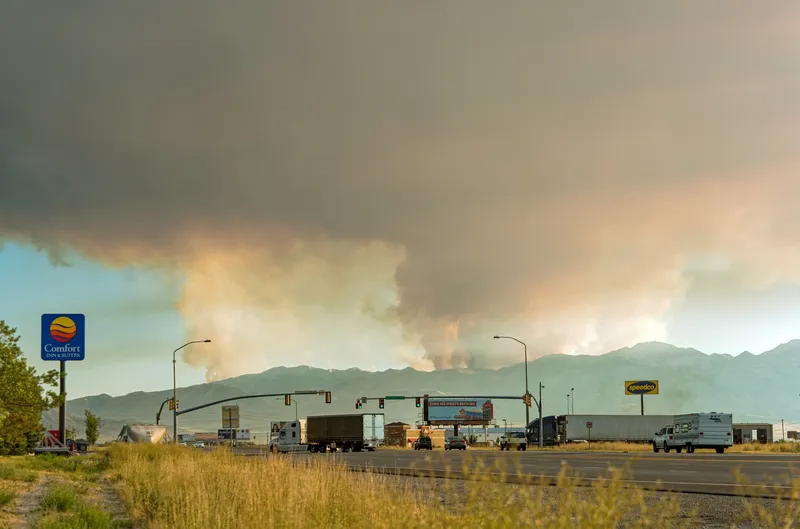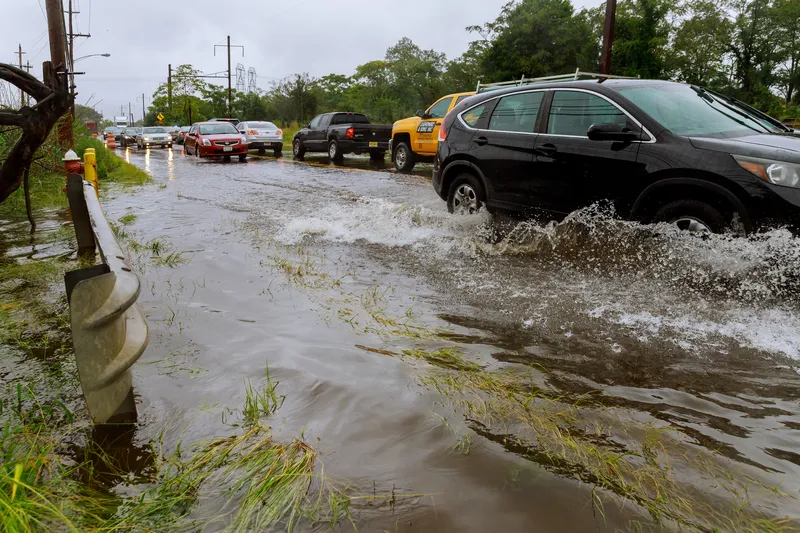
The Department of Transportation’s Federal Highway Administration (FHWA) is to make $7.3 billion in funding available to help protect transport infrastructure from extreme weather events such as wildfires, floods and intense heat.
The money will be given to highway and transit projects, as well as bicycle and pedestrian facilities.
“In every part of the country, climate change is impacting roads, bridges, and rail lines that Americans rely on - endangering homes, lives and livelihoods in the process,” said transportation secretary Pete Buttigieg.
“Using funds from President Biden’s Bipartisan Infrastructure Law, we're launching this unprecedented effort to help communities protect their transportation infrastructure from extreme weather and improve routes that first responders and firefighters need during disasters.”
The new Promoting Resilient Operations for Transformative, Efficient, and Cost-Saving Transportation (Protect) formula programme funding is available to states over five years to spend on resilience planning, making improvements to existing transportation assets and evacuation routes, and addressing at-risk highway infrastructure.
“We see the effects of climate change and extreme weather play out across the country every week, with extreme temperatures and rainfall and resulting flooding and wildfires that damage and in some cases destroy roads, bridges and other transportation infrastructure,” said acting federal highway administrator Stephanie Pollack.
“The Protect Formula Program will help make transportation infrastructure more resilient to current and future weather events and at the same time make communities safer during these events.”
Meanwhile, the Biden-Harris Administration has announced $102.3m in disaster relief funding to 17 transit agencies, cities, and planning councils in eight states and territories to help recover from recent natural disasters.
The money comes from USDoT's Federal Transit Administration (FTA) through its Public Transportation Emergency Relief (ER) Program, and is to help recoup costs for evacuation and rescue operations following floods, hurricanes and tornadoes that occurred in 2017 and 2020-22.
The awards include $27.7m to the Bi-State Development Agency of the Missouri-Illinois Metropolitan District to recover from major flooding in St. Louis in 2022; $25m to the New York Metropolitan Transportation Authority to rehabilitate its 57th Street substation, which was damaged during Hurricane Ida in 2021; and $31m to Puerto Rico to repair damage caused by various earthquakes and Hurricane Maria.
“Americans cannot stop their lives because a disaster damages their transit systems,” said FTA administrator Nuria Fernandez. “We know it is critical to fund recovery efforts for these systems, so they can keep taking Americans to work, to school, to doctors’ appointments, and for all the other important journeys that transit provides.”
Separately, FTA has also announced $20m to 47 communities "to help improve public transportation options in areas experiencing long-term economic distress".
FTA's Areas of Persistent Poverty programme provides support to state and local governments, transit agencies, and non-profit organisations to create better transit for residents with limited or no transportation options.
"Across the country, people who live in low-income rural, urban, and Tribal communities are less likely to own a car and more likely to rely on public transit," says Buttigieg.
"Through this programme, we are bringing affordable, accessible public transit to the very communities that need it the most, making it possible for more people to access jobs, resources, and opportunity."









